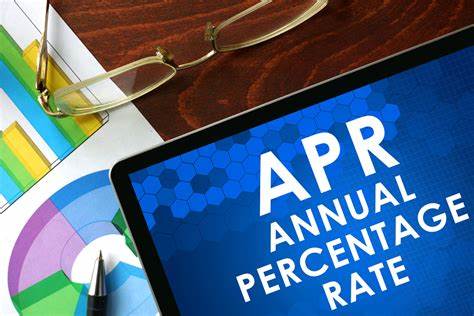If you have ever bought a credit card everywhere, you may see the word "APR" with a lot of related footnotes. You know this is related to your interest rate, but most people are not sure - what is APR?
1. Timely full repayment and minimum payment
As a credit card holder, you can choose to repay your debts or pay the minimum amount each month. Interest on your unpaid credit card amount is compounded based on your daily balance. The minimum due amount is usually 5% of the outstanding balance on the settlement date. You will not receive any interest-free credit terms only if you pay the minimum amount due. You will also be charged interest. (See below for more details). The interest portion accumulates until the accounts payable, making the cost of ownership very high.
2. Pay attention to credit card punishment
If you delay the payment of the credit card due amount, the bank has the right to charge you a fine. Different banks have different fines depending on the amount of the unpaid amount and the type of credit card. For example, a leading bank imposes a fine of 400 rupees on the balance of the statement below 5000 rupees, a fine of 500 rupees on the balance between 5,000 and 10,000 rupees, and a fine of 700 rupees on the balance of more than 20,000 rupees. Therefore, you not only have to pay a very high interest rate, but you also have to pay a fine that is overdue.
3. Don't ignore the annual fee
The bank charges an annual or annual fee for the use of credit card services. The exact amount of the annual fee varies from bank to bank and varies depending on the type of credit card you have. High-end cards can cost thousands of rupees per year. Usually, in the first few years, or if your credit card spending exceeds the prescribed limit, these fees will be waived. As a credit card applicant, be sure to compare the annual fees before finalizing your credit card selection.
4. Understand the interest rate and billing cycle
Credit card rates range from 1.7% to 3.5% per month. This may not sound too much, but every year, we talk about interest rates between 20% and 40%, making credit card debt one of the most expensive forms of debt. Although a credit card has an interest-free period, it is not related to the date you purchased, but rather to the billing cycle of the credit card. Therefore, if your card's billing period starts on the 10th of each month, then any purchase you make on the 7th of the month will only receive a 3-day interest-free period instead of a full 45-day or 50-day interest-free period. period. The timing of your credit card purchase should be based on the billing cycle of your card to ensure that you make the most of the maximum interest-free period.
5. Credit card and its impact on credit scores
Your credit card default or non-payment will not only increase high interest rates and fines, but will also have a negative impact on your credit score. Recently, the Reserve Bank of India issued guidelines in which banks can impose fines and report delays to credit information companies if payment is delayed for more than three days. Failure to pay the minimum amount due within 90 days of the expiration date may mean that your bank will treat your credit card as a non-performing asset (NPA), which can seriously damage your credit score.
6. Pay attention to your credit utilization
Your credit utilization is the amount of credit you can spend. For example, you might have a credit card limit of 100,000 rupees, and you spend 50,000 rupees a month. This means your cur is 50%. Even if you pay your credit card bills on time, in the opinion of a credit rating agency, you seem to be a person who often needs credit. In essence, it is a credit hungry person.
From the perspective of having a healthy impact on your credit score, the ideal cur is 20%-30%. If you often exceed this limit, you should change your strategy. Ask for a higher credit limit, split your spending into multiple credit cards, or simply reduce your credit card spending to an acceptable level. If you are the first person to use a credit card, credit card is a very effective financial tool, as long as you know more detailed information, including the use of etiquette and related financial expenses.


